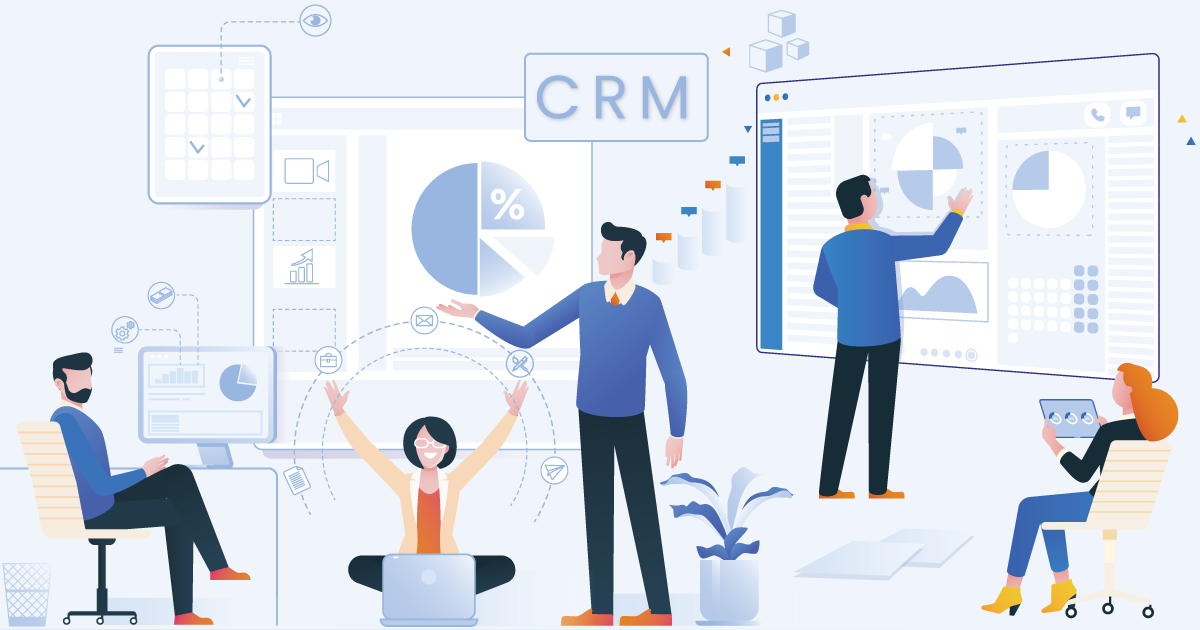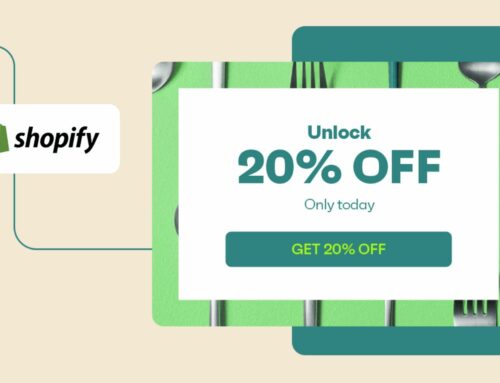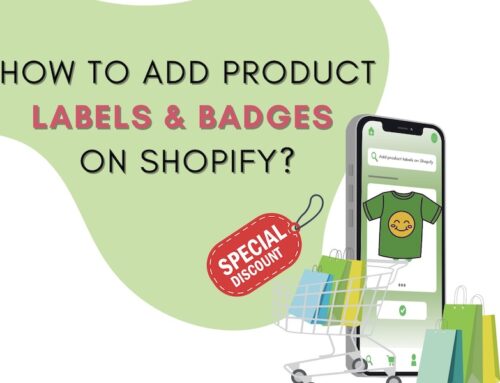It’s never easy for Shopify online store owners to manage their customers’ records. However, it’s a critical feature for every e-commerce business that should not neglect to boost revenue and sales. As a result, integrating a Customer Relationship Management (CRM) system into the Shopify store would be ideal to bring more success to your brand. This article will show you the best Shopify CRM platform that your store should not miss.
To get the most out of your eCommerce operation, you’ll need a comprehensive CRM built into your Shopify store, whether you’re looking for deep insight on purchases or customization workflows, or a single support framework to handle sales and promotions for multiple Shopify stores. If you spend a few minutes looking for CRMs online in this article, you’ll find that there are a lot of options. By finishing this post, you will find out the best Shopify CRM platform suitable for your Shopify store.
Let’s take a look at the advantages of Shopify CRM integrations. We also compare the top Shopify CRM integrations so you can choose the one that’s right for your Shopify store. Now, let’s dive into it!
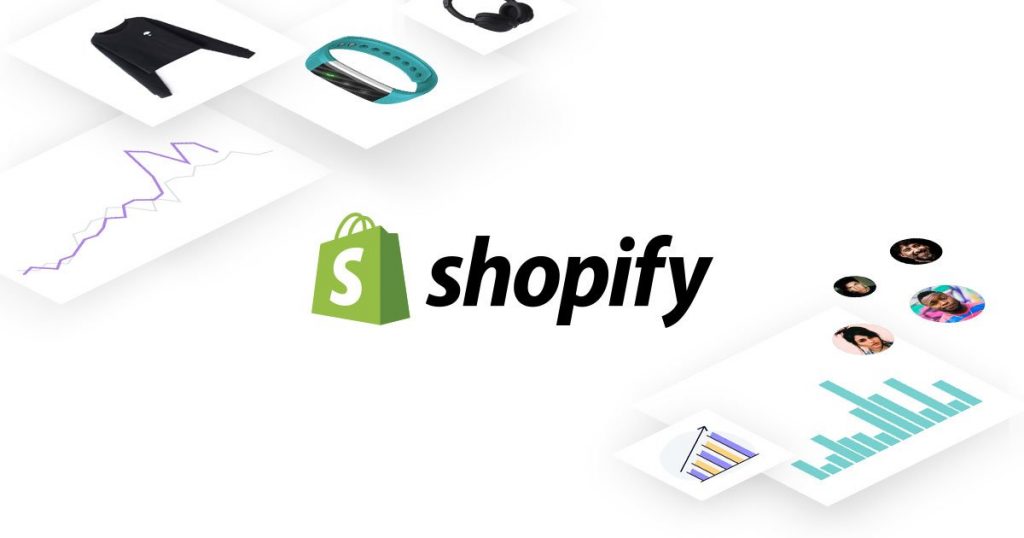
Contents
Criteria of Best Shopify CRM Integrations
Searching for a suitable CRM for your Shopify store can be challenging, and if you don’t know what to look for, you might end up purchasing a complicated and difficult-to-use solution. Worse, you might buy a CRM that doesn’t have a decent Shopify integration, which would increase your workload.
To help you out of it, here are some common needs for choosing the best CRM to use with Shopify
Integration capabilities
This is likely the most important consideration for any Shopify store owner. The Shopify CRM integration should be smooth, simple, and quick. There should be no coding and no complicated things. More important, working smoothly with Shopify isn’t enough. A CRM that works with a variety of eCommerce and business applications that help users use to sell online is more appropriate. Customer data and other valuable information can be exchanged between your CRM and other business channels, allowing you to be more coordinated and productive.
Friendly for users
Your CRM approach doesn’t have to be overly complicated to be successful. Choose an easy-to-understand approach that doesn’t threaten to reinvent the wheel.

Automated workflows
The ability to automate recurring processes and workflows cuts down on time wasted on mundane jobs, lowers the risk of human error, and makes it easy to engage clients.
Why Does Your Shopify Store Need CRM?
With the best Shopify CRM, merchants can help handle their entire consumer lifecycle. Customer satisfaction rates must be high for the business to be a stable and long-term success. Through a business CRM, you can gain a better understanding of your clients, allowing you to personalize their interactions more effectively.
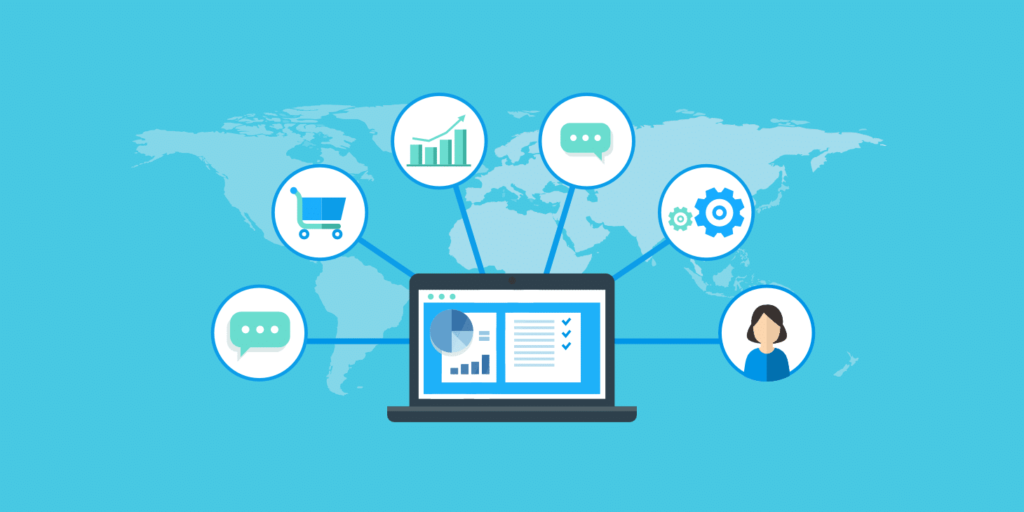
Many eCommerce websites work well with CRMs, making it easy to handle customer contact details as the business expands. Other significant advantages of using a CRM include:
- Cross-Selling Possibilities: The best method for storing and maintaining consumer behaviors for research and procedures is an eCommerce CRM program. This means that by thoroughly analyzing and processing the data, you can create customized marketing strategies to increase customer loyalty and cross-sell opportunities.
- Improve partnerships: The best way to improve your customers’ engagement and retention is by offering them personalized suggestions. The increased conversion rate is due to the consumers’ perception that you know them and care for their needs. This will aid in the formation of a close bond, transforming them from clients to admirers.
- Better data analytics: With the CRM for eCommerce, you have access to a wealth of knowledge. Furthermore, the most detailed and competent CRMs allow you to customize your dashboard, categorize customers based on different filters, and develop customized marketing campaigns, giving you a great opportunity to get to know your customers better.
- The better it is to gather information from consumers and their preferences, the easier it is to use what you’ve learned to boost revenue. Your eCommerce CRM will have a bird’s eye view of all that occurs in your online store with ease.
- Automate admin tasks: A CRM system can handle small admin tasks like filing, email marketing, and even certain legal problems. Focusing on potential markets and consumer pain points, and sales are critical, and a successful CRM allows you to do so.
- Cost savings: while the initial cost of a CRM can seem to be an expense, the long-term return on investment is astounding. Understanding your clients, as well as which brands are performing and underperforming, as well as finding potential products, would just increase your business’s sales.

Quick review of Top 8 Best Shopify CRM Integrations
| Platform | Pricing | Ease of use | User Interface | Contact Management | Additional Integrations | Customer Support |
| HubSpot | FREE | Easy | Standard, Property-based | Data category to collect and store customer information | Gmail, Microsoft Office 365, Outlook, G Suite, Instagram, Facebook | Online Community Support, Phone Support |
| Freshmarketer | Free forever, Paid plan starts at 19$/m |
Easy | Simple, Intuitive and user friendly |
360-degree view ofcontacts, predictive contact scoring and segmentation of audience |
Freshworks marketplace, Facebook, Whatsapp, SMS, Apple Business Chat |
24 hours/5 days, Chat, Support, Tutorial, Ticket, Online Community Support, Phone Support |
| Capsule CRM | Free plan available, plan from $18 to $36/user/mo | Easy | Well-organized and minimalistic layout | Track each client’s past, Support contact files, Add numerous contact simultaneously | G Suite, Gmail, Microsoft, and others | Phone Support, Tutorials |
| Salesforce | From $18 to $3000/user/mo | Easy | Intuitive interface | Keep track, add customer contact | G Suite, Microsoft, other Social media platforms | Community, 24/7 Support |
| Zoho | Free plan available, from $12 to $20/user/mo | Medium | Revamped UI with minimal look, holding 6 to 10 components | Creates connections and leads to potential clients | Facebook, Gmail, and others | Phone Support, Online Community, Tutorials |
| Agile CRM | Free plan available, plan from $48/user/mo | Easy | Clean, modern, and intuitive interface | View date contact, quickly and easily importing contact | Twitter, Facebook, Google Plus, Linkedin, and others | 24 hours/5 days, Chat, Support, Tutorial, Ticket |
| Metrilo | From $119-$499/user/mo | Medium | Friendly, enjoyable, and intuitive | Historical web-stored data, lists of client contacts | Twitter, Facebook, Youtube, Pinterest, Linkedin, and others | Docs, Phone Support |
| Nimble | From $12/user/mo | Medium | Fairly clean and attractive web-based interface | Obtains social and contact information automatically | G Suite, Office 365, Linkedin, Facebook, Gmail, and others | Email, Chat Support |
| Pipedrive | From $12.50/user/mo | Easy | Fast, intuitive interface | Track store, manage contact information | Slack, Gmail, LinkedIn, and other social media platforms | Email, Help Desk, FAQs/ Forum, Phone Support, 24/7, Chat |
Hubspot
HubSpot provides Shopify store owners with several tools and features to help them boost sales and marketing processes. It is also one of the most widely deployed best Shopify CRM integrations, with hundreds of thousands of shops using it. The massive popularity and convergence are due partly to the fact that it is a truly free CRM with no time limits.
This CRM is essentially a framework that helps you create your own custom product workflow pipelines that lead to orders placed on your Shopify online store. Additionally, it incorporates email monitoring, deal pipelines, and lead generation features to make sales processes easier to handle.
Moreover, the contact management process is straightforward and easy to use. And novices can be able to set up and arrange communications with ease, as well as follow up on the resulting observations, including all site events by the corresponding leads.
Another great aspect of this CRM setting it apart from other CRMs is its ability to auto-populate contact accounts with social information obtained from its affiliated businesses.
While HubSpot has more premium functionality than most free CRMs, the only disadvantage of this platform is that it lacks the capability and ability of premium paying CRMs, such as marketing integration and process management.
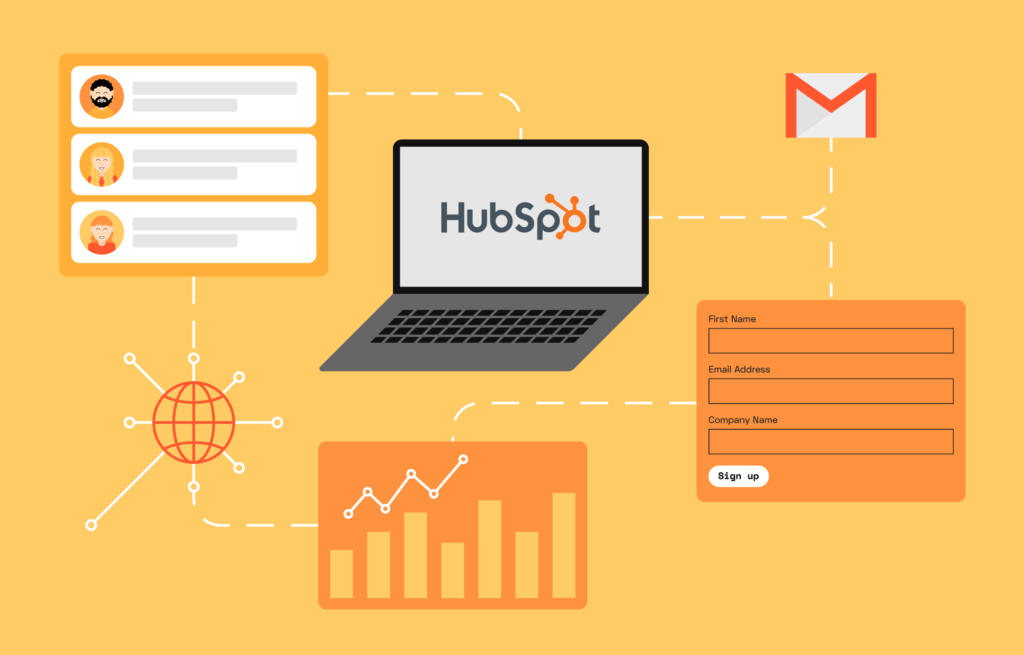
Price
HubSpot is a fully free platform with no strings attached. You can use the CRM’s full capabilities and functionality for as long as you want at no additional cost. But the platform offers a paid plan for marketing/sales/service hub from $32 – $1200/month in case you require it.
HubSpot CRM Pros
- Free: a low-risk platform, the high-reward time commitment for your business
- Live Chat: easy to set up and manage
- Better insights: track client interactions automatically, offering good insights into client behaviors
- No customization limits: customize everything of your store and specific sales process
- Use the same database as a marketing platform: The platform permits a transition from marketing to sales in your funnel with ease
- Use parallelly with other CRMs: can be used simultaneously without any problems
HubSpot CRM Cons
- Feature limits: relatively new compared to other CRM players
- Lightweight: great for growing brands but not enough for large businesses
- Lack flexibility: relatively inflexible compared to other CRMs but the platform is trying to provide enough worthwhile functionalities
Freshmarketer
Freshmarketer – best CRM with Shopify – is an all-in-one, multi-channel (chat, messaging, email, bot) marketing & support solution that’s been tailored for Small & Medium sized Shopify storefront owners.
You can add users with a click of a button without extra cost. Freshmarketer pricing is based on marketing contacts, so businesses can scale with the marketing CRM without worrying about added costs. As a bonus, you can add upto 10k contacts for free when you signup with your Shopify account.
It helps you to build multi-step customer journeys and reduces manual grunt work in sending personalized messages to different customer segments.
Freshmarketer offers a CRO add-on to help you identify website pages that are performing well and those that are not, where customers drop off on the website, and more. Combine these insights to improve and optimize website performance.
Choose from over 100s of apps in our marketplace to create videos, manage payments, improve collaboration, and more.

Pricing:
Freshmarketer starts with a fully free plan offering multiple features like Website Tracking, Contact Management, Live chat and Additional 10k contacts when signed through Shopify. If you would like to upgrade, the paid plan starts at just 19$ a month.
Freshmarketer Pros:
- Ease to use: Ridiculously easy to adopt and use
- Shopify customizations: Pre-built Shopify playbooks, behavior segments, and performance insights to boost sales and improve conversions
- Advance Insights: Send personalized automated messages like offer promotions based on customer behavior
- Chatbots: Set up chatbots to engage with customers when you are away or while you sleep
- Marketing made easy: Send out great looking email campaigns in minutes with 100+ templates and customize with the drag-and-drop editor
- Great pricing: Free forever. Upgrade to premium plan with advanced features for just 19$/m.
Freshmarketer Cons:
- Best suited for SMB: Works best for Small and Medium growing businesses
- Exclusive to Shopify: Product is specifically tailored to Shopify needs, Other integrations such as Magento, WooCommerce are yet to be added
- Mobile app limitation: not optimized for mobile usage yet
Capsule CRM
Capsule CRM is one of the best Shopify CRM integrations suitable for small and medium-sized businesses. With Capsule CRM, not only can you handle user accounts and associated details, but you can also manage suppliers, site users, and leads.
The platform also builds user accounts, notes, and the customer’s interaction history. It also aids you in delivering products to your customers on time, as specified by the delivery dates. It is a user-friendly program that can quickly become accustomed to your devices. You’ll be able to monitor bids, sales, and plans from suppliers if you have access to the Capsule database.
Besides, you can keep track of details like which consumers generate the most revenue, generate sales results, and identify procedures for the staff to execute to achieve their objectives. Capsule CRM is a simple software that allows you to remain linked even though you’re not at work.
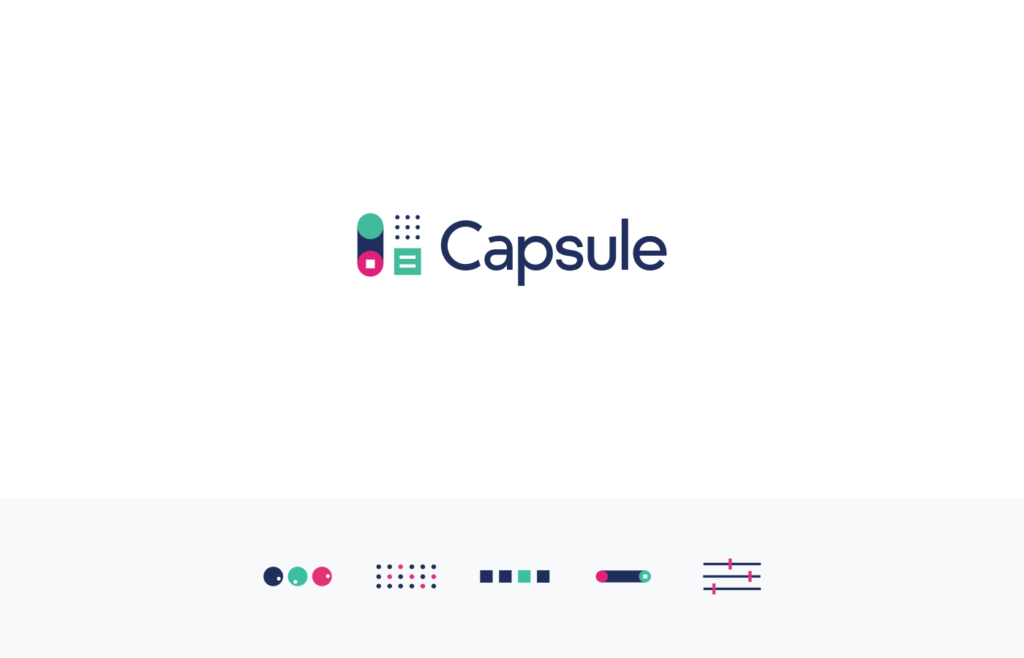
Price
A free version of Capsule is available for up to two users. The Professional edition costs $12 a month per user and is available for a trial period of 30 days.
Capsule CRM Pros
- Easy to use: not feature-heavy, no onboarding necessary except a few minutes to set up some features
- Competitively priced: a low-cost paid version (free version), 30-day free trial
- Easy to customize: easy to set up a dashboard, contact list, pipeline, calendar
- Powerful functionality: with a simple helpdesk useful for some businesses
Capsule CRM Cons
- Integration limited: only integrate with some in the paid version
- Lack features: Marketing, email features not offered, and others compared to other Shopify CRM platform
Keep read: Best Shopify Mobile App Builder: Most Complete Info You Must Know
Salesforce
Salesforce is the most common Shopify CRM integration, with hundreds of stores using it. There are a few options available in the Shopify App Store that can help with salesforce integration.
Understanding and using a CRM can be challenging at first, but by using ‘Salesforce Trailhead,’ their online training tool, and accessing their ever-growing community, you can already have an answer to a question.
Salesforce enables businesses of all types to increase revenue, simplify tasks, and make better decisions to expand faster. Salesforce CRM gives the sales staff access to real-time consumer data in one location and feedback from dashboards and reports.
Lead and communication management, sales opportunity management, and process rules and automation are all available through Sales Cloud. Sales Cloud is the company’s standard CRM solution, which is a cloud-based framework with a mobile app. Sales Cloud provides sales teams with a flexible solution for managing contacts, opportunities, and leads and forecasting sales, and increasing productivity.
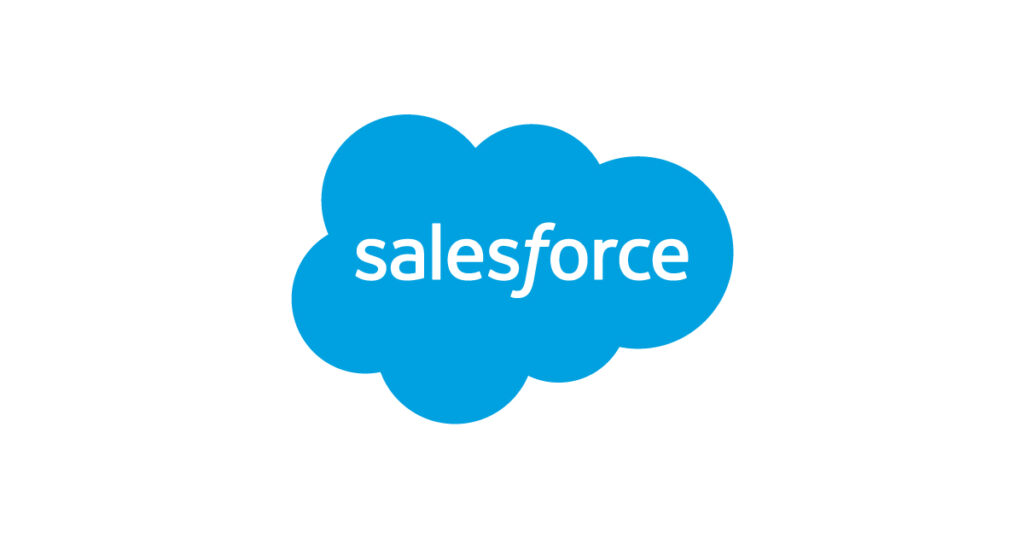
Price
Salesforce users can choose from a variety of products based on their needs and preferences. The packages range in price from $18/mo to $3000/mo for the full suite of facilities and features.
Salesforce Pros
- Customize with ease: create a tailored CRM particular for each brand
- Cloud Solution: since your business is in the cloud, you can take it with you everywhere you go
- Easy to use: no hardware requirements
- Business automation: to increase the productivity of the company’s operations
- Efficient management: keep track of activities of your employee’s (tasks, made calls, sent emails)
Salesforce Cons
- Costly customization: include extra costs
- Complexity: overwhelming for small business for this complex and powerful platform
- Interface transformations: drastically altered by an update or release making it difficult for users to find their well-known features
- Complex technical support: the process take too long
- Complicated reporting: hard to generate reports even with simple ones
Zoho
Zoho is not as powerful as other top best Shopify CRM platforms, but the fairly inexpensive price is worth for your company to consider.
The platform offers a powerful email marketing platform as well as some fantastic customizable online forms for collecting leads on the eCommerce pages. The monitoring feature is one of the powerful ones. One of the best features of their reports is the ability to save reports to a “favorites folder,” which is very useful for easy access.
It has now put a lot of effort into its mobile app, which can be very useful if you also have a physical shop. It will tell you which clients are nearby, which is especially useful if you are hosting an exhibition or a pop-up event. This could then be linked to Zoho’s email feature, allowing you to reach all of your local customers and leads.
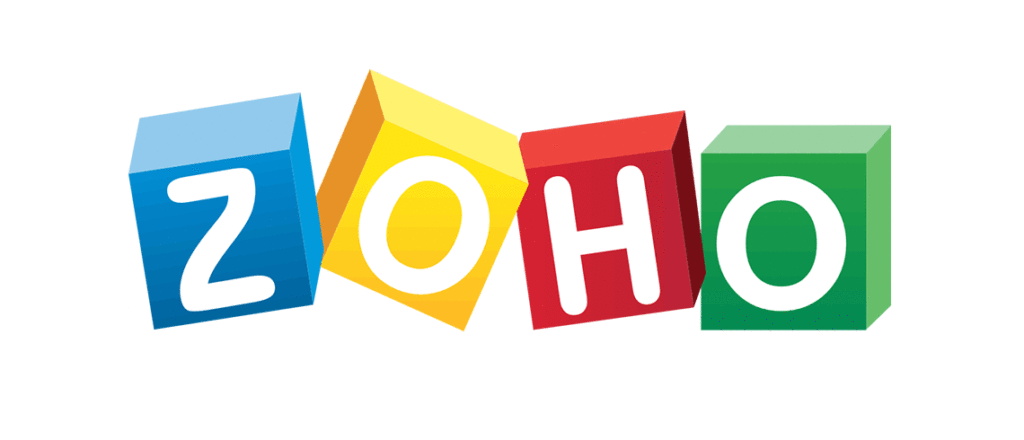
Price
The CRM is very reasonably priced, starting at $12 a month per user. A free restricted edition of the CRM is also available, as well as a free beta.
Zoho CRM Pros
- Great CRM features: email marketing & automation, social, inventory, human resources management
- Comprehensive reporting: offer report you need and create your own ones
- Seamless integration: All is running well with a pricing model
Zoho CRM cons
- Require little technique: need a lot of customization to get started
- Limited customer support: the team is not always available
- Limited in features: the platform has a lot of features, but as your needs grow, the breadth of its functionality becomes minimal
Agile CRM
Agile CRM software, also being recommended as the best CRM to use with Shopify, which is a one-time integration designed to help Shopify sellers increase revenue by using web engagement and marketing automation resources.
AgileCRM has quietly developed a great reputation by remaining under the radar. It provides a great range of software that can be found on other CRMs for a fraction of the price, making it a great choice for beginners due to its very competitive pricing.
AgileCRM allows Shopify stores to keep a close eye on sales while also providing comprehensive marketing automation capabilities. It also has helpdesk options to enhance the software experience and increase sales and revenues.
Agile’s cart abandonment tool is also another great feature to use. With this tool, you can send customized messages to people who have lost their carts. You can be able to remind them of their shopping cart while still encouraging them to finish the transaction.

Agile CRM Pros
- Affordable prices: suitable for startup and new business
- Easy to use: simple to set up and management interface for beginners
- Easy contact management: with a variety of methods like manually inserting, importing CSV files, pulling data from the web, syncing from apps
- Best email marketing tool: offer abandonment cart emails, coupons, automated triggered newsletters
- Automated sales pipeline: make it easy to close deals
Agile CRM Cons
- Bug in some feature: buggy email capabilities
- Issues with third-party integration: lack of integration with integrations
- Limited service automation features: only offer group & email forwarding, ticket labels
Metrilo
Metrilo offers a solution for real-time commerce data analytics, as well as efficient CRM and personalized email marketing. Users can get a deeper understanding of your guests and buyers with Metrilo, from their first interaction with your shop to their most recent order.
The Metrilo CRM integration with Shopify will store specific information about your clients, such as their orders, page views, meetings, revenue, contact information, segmentation, and more. It also has an innovative behavior analysis function that allows shop owners to build client lists using up to 30 different filters. So you know who is out for a bargain and who is a long-term buyer.
To get access to all of these awesome features, you’ll have to pay $119 a month after a 14-day free trial.

Price
Metrilo provides modular packages that can scale with your company’s development. The CRM also provides a free preview for those who want to test out the features before subscribing to the platform, plan from $119-$499 per month per user.
Metrilo CRM Pros
- Easy to use: with tons of valuable data but easy to handle
- Useful eCommerce-focused features: based on client insights data and their web behavior
- Great UI: beautiful design data displayed
- Great support: live-chat support on all pricing plans
- Register unlimited users: with no per user/month pricing making the Metrilo more affordable than other CRM platforms
Metrilo CRM Cons
- Email automation: only included in a most expensive plan
- Costly: non-available free plan, not suitable for startups or businesses
Nimble
Nimble is a fantastic CRM that integrates with Shopify. Nimble uses Zapier to synchronize data between its tool and Shopify.
The platform provides standard tools for managing consumer data, creating sales funnels, and optimizing marketing strategies for retailers. It also provides unique tools for integrating social data into your CRM, reducing data entry time, and expanding the number of ways to recognize consumers across social media channels.
Nimble’s import process is simple and reliable, and the number of options for importing and syncing data with other applications is extensive. You can also decide how the platform can overwrite and merge records during the import process. Besides touch and pipeline management, the platform offers deal monitoring, job control, and alerts features.
Nimble also has social listening built in to keep customer accounts up to date. This enables companies to keep track of the contacts they are mentioning, watching, or communicating with and celebrating events like birthdays, allowing for more knowledgeable outreach and follow-ups.
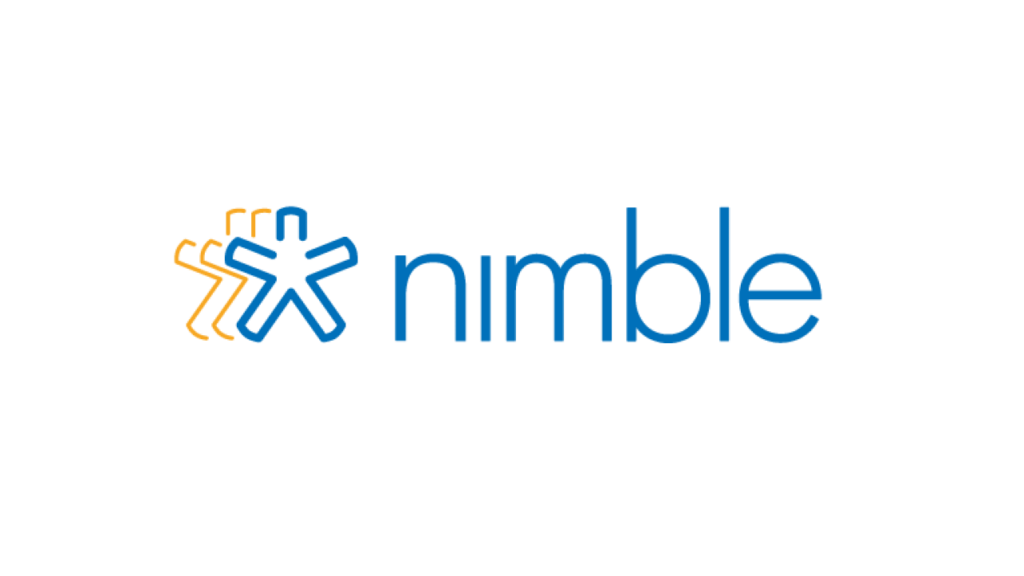
Price
Nimble has very cheap pricing for the features it provides, with the simple package starting at $12 per customer per month.
Nimble Pros
- Seamless contact importation: users won’t meet any difficulties while importing contact
- Customer engagement: customer partnership monitoring demands are easily met
- Track new messages with ease: assist users in locating and tracking social media posts
- Unify cooperation: all of your contacts, projects, activities, emails and news from the most common social networking sites are collected in one location.
Nimble Cons
- Mobile app limitation: not optimized
- Limited customization: users have little authority through the customization of data and analytics
Pipedrive
Come in the last top 8 best Shopify CRM platform is Pipedrive, a reliable CRM platform handling everything your business needs. Pipedrive is more than just a decent CRM system. There’s a lot more to it than that. It also advertises itself as the finest CRM platform and pipeline control system on the market.
Pipedrive CRM is a fantastic CRM tool for small and medium-sized B2B companies. It has all of the features you’ll need to handle your connections, leads, and deals with ease, as well as templates, community addresses, and process management to save you time.
Moreover, Pipedrive has progressed a long way toward being a truly optimized customer relationship management platform that can be used by anyone. It enables users to organize leads in a way that boosts conversion rates. Set up an environment to maximize your individual company by automating lead scoring. Besides, Pipedrive has excellent lead generation and salesperson coordination capabilities since it is a sales-first CRM.
Pipedrive offers a variety of resources and integrations that would be appealing to users. Pipedrive’s user interface is easy to learn and use easily, which saves time and money as opposed to the time and money required for preparation and onboarding with other platforms.
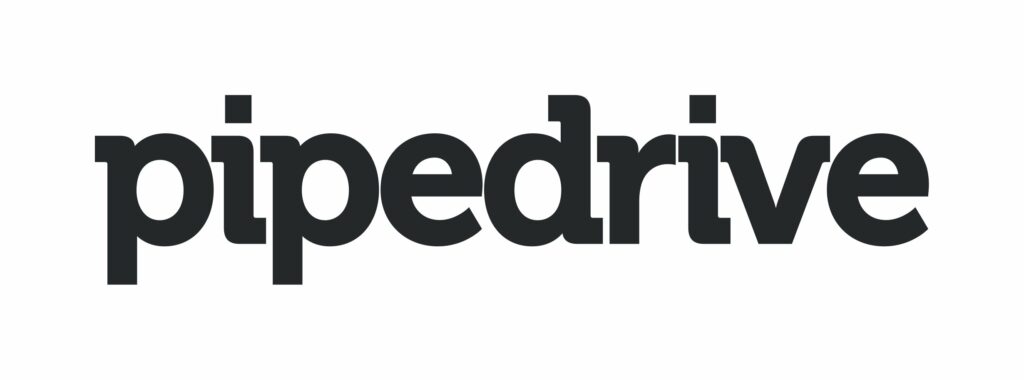
Price
Pricing starts at $12.50 a month and goes all the way up to $99 a month. It’s not the most expensive CRM on the market, but it’s still not the most affordable.
Pipedrive CRM Cos
- Affordable: with plan starting from $15/mo/user, suitable for small businesses
- Easy to use: easy to navigate with nice design for beginners
- Pipeline management: unlimited pipelines and properties
- Support: chat and email support available in all plans
Pipedrive CRM Cons
- No email marketing: lack this feature compared to other CRM tools
- Leads & Contacts not separated: when you make a new contract, the individual that is involved with it becomes a new lead right away, even though you just wish to have them as a link
How to Expand the Capabilities of Your CRM?
Integrations are a big part of what makes a CRM useful. All of the CRMs listed in this article are compatible with Shopify and other popular eCommerce platforms. This means they exchange data across networks so you don’t have to spend time searching for information manually.
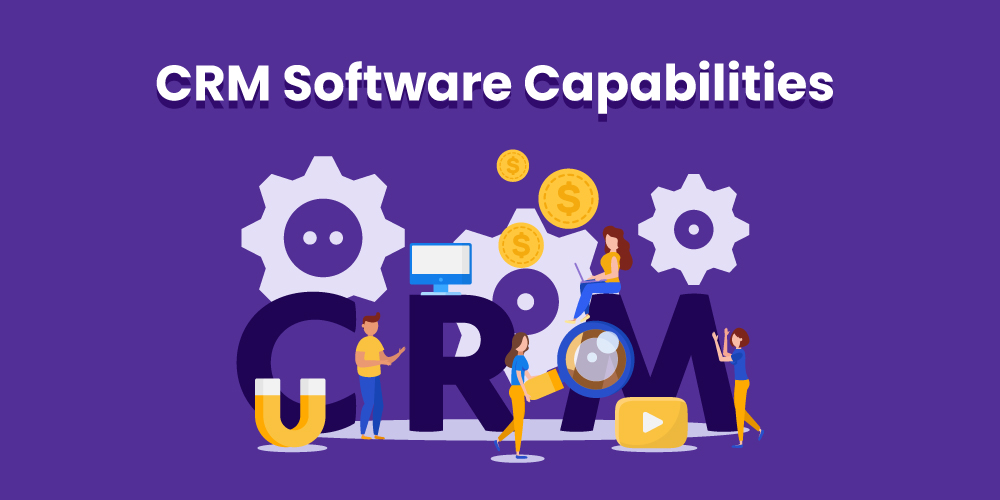
Finding a strong automation framework that integrates Shopify and common eCommerce apps would maximize the CRM’s benefits. Moreover, the framework allows you to create dynamic workflows that accomplish tasks such as:
- Keeping the CRM up to date with Shopify details
- Organizing the introduction of new collections and products
- As consumers follow the eligibility conditions, give them a gift or a refund
- Automating contact via email, Slack, and SMS
Building workflows for the right automation tools would not necessitate the use of any code. This ensures that everyone can make automation and keep track of their customer’s desires and interests.
Summary: Which Is Your Best Shopify CRM Integration
- HubSpot: Best for growing businesses looking for a flexible free CRM approach.
- Freshmarketer: A multichannel marketing solution tailored for SMB storefronts, designed to easily integrate with the leading e-commerce platform Shopify.
- Capsule CRM: Best for small and medium-sized firms, especially for real estate, design, travel agents, accountants, and hotels and hospitality.
- Salesforce: The best solution for large and growing businesses
- Zoho: For eCommerce businesses of all sizes looking for a simple, low-cost CRM solution, Zoho is the best option.
- Agile CRM: Great affordable solution for startups, small businesses requiring sales, marketing, and service automation.
- Metrilo: Powerful all-in-one CRM integration, for medium-sized to big firms.
- Nimble: Most simple CRM tool, suitable for small, start-up businesses.
- Pipedrive: Best for small, mid-sized B2B companies searching for an easy, effective CRM.
Wrapping up
When it comes to eCommerce CRM, you have a lot of choices. Fortunately, you don’t have to make a hasty decision.
Take advantage of free trial times to try out a few different CRMs to determine which one is better for your business needs. Hope our best Shopify CRM platform article can help you figure out the most appropriate CRM integration for your Shopify store.
>>> Related topic: Best Shopify Customer Service Apps To Boost Sales

